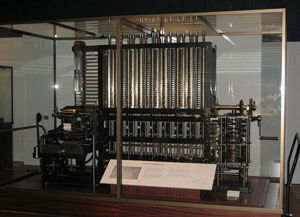The First Computer in History: A Comprehensive Overview
The history of computing is a fascinating tale of innovation, ingenuity, and progress. While modern computers have become ubiquitous and integral to our daily lives, they owe their existence to their humble beginnings. This article dives into the story of the first computer in history, shedding light on its creation, purpose, and impact.
The Analytical Engine: A Visionary Concept
While the definition of a computer has evolved over time, many historians consider the Analytical Engine, conceptualized by Charles Babbage in the 1830s, as the first computer in history. Although never fully constructed, the Analytical Engine was a groundbreaking concept that laid the foundation for modern computing.
Charles Babbage: The Father of Computers
Charles Babbage (1791-1871) was an English mathematician, philosopher, and mechanical engineer. Driven by a desire to eliminate human error in calculation, Babbage set out to design a machine capable of performing complex mathematical operations automatically. In 1822, he proposed the Difference Engine, a machine designed to calculate and print mathematical tables.
While working on the Difference Engine, Babbage conceived the idea for a more sophisticated and versatile machine: the Analytical Engine. He envisioned a device that could not only perform arithmetic but also be programmed to execute a wide range of tasks.
The Design of the Analytical Engine
The Analytical Engine was composed of two main parts: the mill and the store. The mill was responsible for calculations, while the store held data and intermediate results. The machine was designed to be powered by steam and operated through the use of punched cards, similar to those used in the Jacquard loom for textile production.
Babbage's design for the Analytical Engine included several features found in modern computers, such as:
Conditional branching: The ability to execute different sets of instructions based on a specific condition.
Iteration: The capability to perform repetitive tasks by looping through a series of instructions.
Parallel processing: The potential to execute multiple instructions simultaneously.
Memory: Storage for holding data and intermediate results.
Ada Lovelace: The First Computer Programmer
Ada Lovelace (1815-1852), an English mathematician and writer, is credited with being the world's first computer programmer. She worked alongside Babbage and was intrigued by the potential of the Analytical Engine. Lovelace wrote the first algorithm intended for the machine, which calculated Bernoulli numbers.
In her notes, Lovelace also discussed the potential of the Analytical Engine to create art and music, highlighting the machine's ability to perform tasks beyond pure mathematics. This visionary understanding of the future of computing has cemented her place in history.
Legacy and Impact of the Analytical Engine
Although the Analytical Engine was never fully built due to funding issues and the limitations of the technology available at the time, its conceptual design had a profound influence on the development of modern computers.
Babbage's and Lovelace's work inspired future generations of engineers and mathematicians. Concepts such as conditional branching, iteration, and memory have become fundamental components of modern computing systems. Moreover, the use of punched cards in the Analytical Engine foreshadowed the development of early electronic computers.
In conclusion, the Analytical Engine, as the first computer in history, represents a pivotal milestone in the evolution of computing. While never realized in its time, Charles Babbage's visionary creation and Ada Lovelace's pioneering programming laid the groundwork for the digital revolution that continues to shape our world today.


